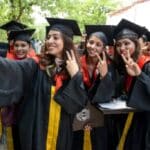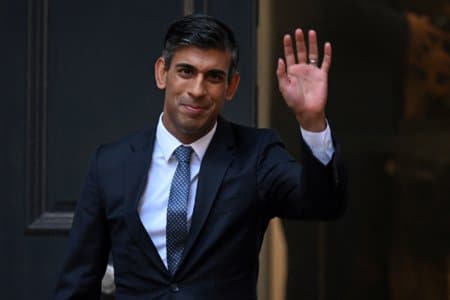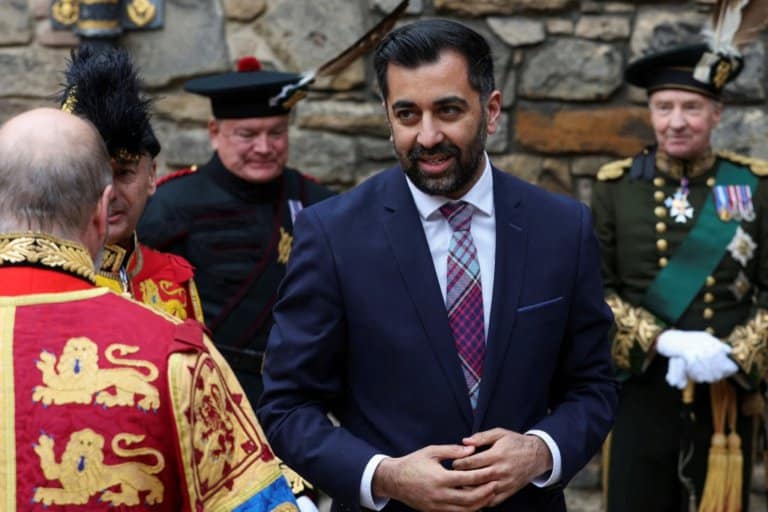
On March 28, Humza Yousaf created history by becoming the first Muslim leader of the Scottish National Party (SNP). Yousaf was elected to succeed Nicola Sturgeon as SNP leader.
On March 29, he was confirmed as Scotland’s new first minister. The “first” in his title is not the only one he holds.
Yousaf is the first Muslim to lead a democratic western European nation, the first to hold the post at 37 years old (the youngest), the first from an ethnic minority background and the first Muslim to lead a major UK party.
And he was chosen by his party to lead another potential first: to be the first generation to deliver independence from Scotland.
Yousaf’s victory comes just months after the UK elected the first person of colour as Prime Minister, Rishi Sunak.
Yousaf and Sunak are both children of immigrants and the first generations of their families to be born in the UK.
“I am forever thankful that my grandparents made the trip from Punjab to Scotland over 60 years ago,” he said during his election victory speech.
“As immigrants to this country, who knew barely a word of English, they could not have imagined their grandson would one day be on the cusp of being the next first minister of Scotland.”
With Pakistani and Kenyan origins and a strong Punjabi lineage, Yousaf is a role model for multiracial and inclusive nationalism in Scotland.
But who is Yousaf and what drove him to be one of the many “firsts” in Scotland?
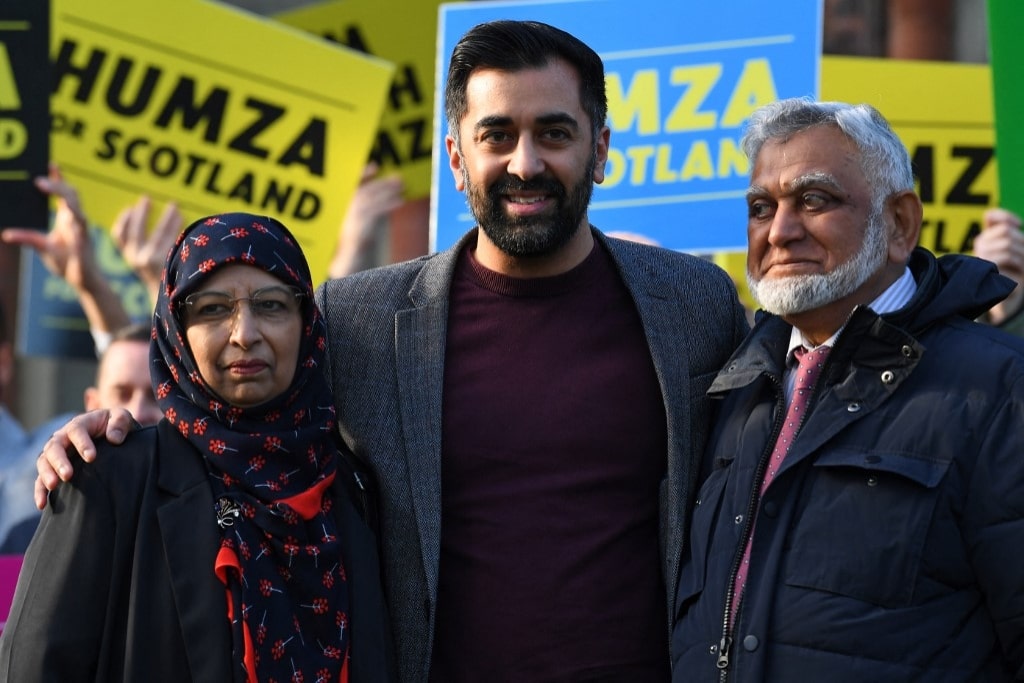
Humza Yousaf pictured with his parents by his side while campaigning. Source: Andy Buchanan/AFP
Humza Yousaf: Punjab origins, Glasgow childhood
Yousaf was born in Glasgow, Scotland, in 1985, after his grandparents had moved to the country back in 1962 from Mian Channu in Punjab, Pakistan.
His mother is also of South Asian descent. She was born into a South Asian family in Kenya and later emigrated to Scotland.
His grandfather Muhammad Yousaf worked in the Singer Sewing Machine Factory in Clydebank, and his grandmother Rehmat Ali Bhutta stamped tickets on the Glasgow Corporation Buses.

Scotland’s First Minister and Scottish National Party (SNP) leader, Humza Yousaf, plays football with children during a visit to a school holiday club in Ayr, southwest Scotland, on April 3, 2023. Source: Andy Buchanan/AFP
Growing up, he attended private school at Hutchesons’ Grammar School, which is sometimes called “Glasgow’s Eton” but with fees more than half of leading English public schools (reportedly 13,000 pounds).
One of the oldest public schools in the country, it was founded in 1641 by brothers George and Thomas Hutcheson.
And like Eton, Winchester and Westminster, this was a school founded for the poor. In Hutchesons’s case, for “12 male children, indigent orphans.”
Since then, it’s become the alma mater of John Buchan (Governor General of Canada), Kevin Sneader (Global Managing Partner of McKinsey and Company), and Adam Fleming (chief political correspondent for BBC News).
Anas Sarwar, leader of the Scottish Labour party since 2021, was also an old boy. Both Yousaf and Sarwar were keen debaters here.
Yousaf was described by a teacher as an “earnest, sincere, hard-working young person,” who “tended to be a little reserved in class.”
After high school, Yousaf didn’t just follow former minister Nicola Sturgeon’s footsteps in politics. In fact, he attended the same university as her.
He joined The University of Glasgow, where he explored his passion for politics by majoring in this field.
It’s a place with distinguished history of teaching politics since the 1760s, when Adam Smith gave a series of lectures on justice, police, revenue and arms at the university.
Yousaf’s degree covered a wide variety of topics, including international relations, political theory and British politics.
Here, Yousaf learnt how to understand and analyse politics while developing analytical and communication skills, preparing him for his career as a politician.
However, his career as a politician did not begin immediately after graduation. Yousaf first worked at a call centre.
Despite being immigrants, Yousaf’s parents ensured their children would receive quality education and secure a successful career.
Starting with his older brother, Umar Yousaf, who is a lawyer and partner at a law firm in Glasgow.
His younger brother, Abbas Yousaf, has followed in his footsteps by entering politics. He is currently a councillor in the City of Glasgow.

Humza Yousaf was then the youngest MSP to be elected. Source: Andy Buchanan/AFP
Humza Yousaf’s journey into politics
At the age of 25 years old, Yousaf took his first step into politics and made history by becoming the youngest-ever member of Parliament.
Yousaf started off as a parliamentary assistant to the first South-Asian Member of the Scottish Parliament (MSP), Bashir Ahmad.
He was one of seven regional MSPs elected to the Scottish Parliament from each of Scotland’s eight parliamentary regions.
This was followed by his role as the Minister for External Affairs and International Development, responsible for external affairs, fair trade policy and diaspora, which he was appointed by Alex Salmond.
Since then, he has continued to climb the political ladder to greater heights.
He then became justice secretary in 2018 and introduced the Hate Crime and Public Order bill, which made “stirring up hatred” on religion, sexual orientation, age, disability and transgender identities an offence.
Yousaf also served as transport minister and international development minister before becoming the health secretary in 2021.
Staying true to his Scottish-Pakistani roots, Yousaf took his oath in both Urdu and English while adorned in a black embroidered sherwani with a Partick Thistle Football Club tartan shawl draped over his shoulder.
This was repeated in 2016 when he took his oath in Urdu for the second time. “Urdu is not my first nor my second language. However, I wanted to pay tribute to my parents, grandparents and my heritage as a proud Scottish-Pakistani. I thought the best way to do this would be to take the oath in both English and Urdu – whilst wearing both a kilt and a sherwani jacket,” he said.

Humza Yousaf’s parents and family eagerly wait to hear him speak during First Minister’s Questions (FMQs) at the Scottish Parliament in Edinburgh. Source: Andy Buchanan/AFP
Humza Yousaf’s bumpy road to the top
While Yousaf has been involved in the political scene in Scotland for over a decade, his journey to becoming the first non-white first minister was not easy.
He had to endure many negative comments. Some were so bad that Yousaf’s sister was forced to come off Twitter after witnessing the abuse her younger brother faced online.
“I was recently in the hospital for a hospital appointment for my mum and was walking through and I heard the sort of porters talking amongst each other. And one of them said, ‘Yeah, you know, useless Yousaf’,” she told STV Scotland’s Tonight.
However, being the positive and determined man he is, nothing can bring him down. When told of the nickname, Yousaf found it funny, saying, “How unfortunate Yousaf goes with useless.”
Yousaf’s friend and family, Danish Ashraf, who has known Yousaf since he was a child growing up in Glasgow, noted, “It shows the effort he has put in to achieve what he has achieved. It has not been easy, no one has handed it to him on a silver platter. He had to fight tooth and nail for this.”
The 9/11 incident affected many, including Yousaf. He has described it as the “day that changed the world and for me”. Only 16 years old at the time, Yousaf had to deal with many questions, such as ‘Why do Muslims hate America?” after the attacks.
Yousaf has credited his political beliefs and values to his family and upbringing.
“From Punjab to our parliament, this is a journey over generations that reminds us that we should celebrate migrants who contribute so much to our country,” Yousaf says.
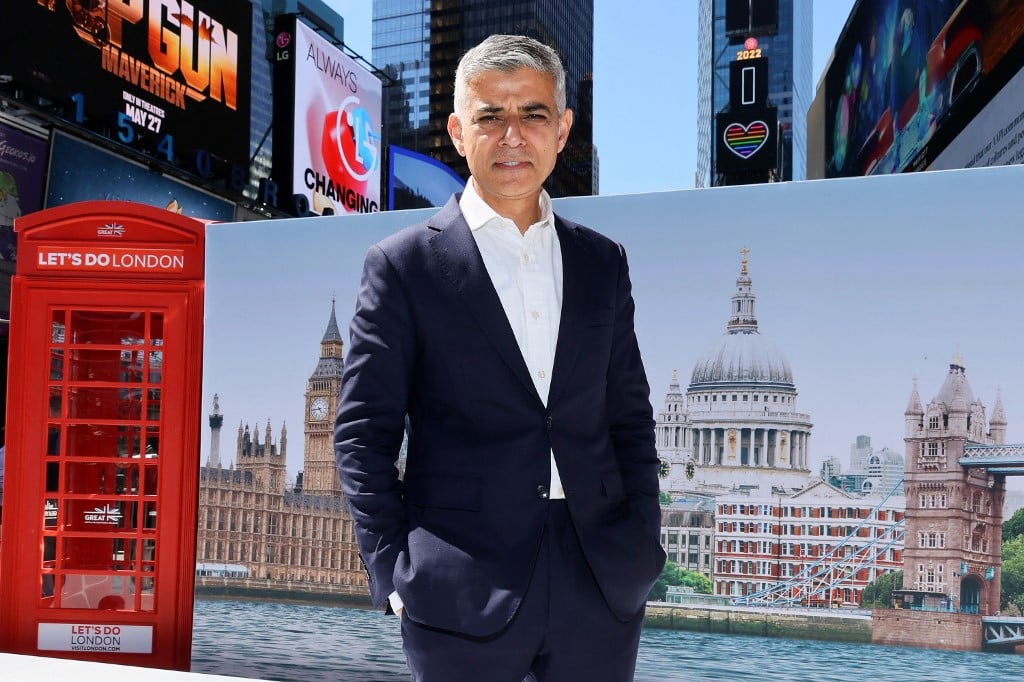
NEW YORK, NEW YORK – MAY 09: London mayor Sadiq Khan poses during the ‘Let’s Do London’ U.S. tourism campaign launch in Times Square on May 09, 2022 in New York City. Dia Dipasupil/Getty Images/AFP (Photo by Dia Dipasupil / GETTY IMAGES NORTH AMERICA / Getty Images via AFP)
Muslim leaders in the UK
Before Yousaf, however, there was another Pakistani who made history in the western world: Sadiq Khan.
In 2016, the son of a bus driver from Pakistan, broke down similar barriers by becoming London’s first Muslim mayor and first ethnic minority mayor — at a time when Europe was struggling with rising Islamophobia.
Similar to Yousaf, Khan has Pakistani origins. Khan’s father was one of hundreds of Pakistani men who migrated to Britain in the 1950s, seeking stable employment, social mobility and opportunities for a better future for their families.
Their dream was achieved when Khan, after graduating in law from the University of London (now London Metropolitan University, entered Parliament.
In 2016, he was elected mayor of London. As the son of emigrant parents who worked as a bus driver and a seamstress, Khan’s win signalled a more inclusive era for London.
“Some of my fondest memories, as someone who was born and raised in London, date back to my years as a student at the University of North London,” says Khan in his university’s student magazine, Verve.
”I grew up on a council estate in South London and my parents both worked incredibly hard to save up so they could buy their own home and give my siblings a good state education. We all benefitted from that education, and their support. It gave me the grounding to study law before going on to work as a human rights lawyer before serving as a local councillor and then as the Member of Parliament for Tooting.




